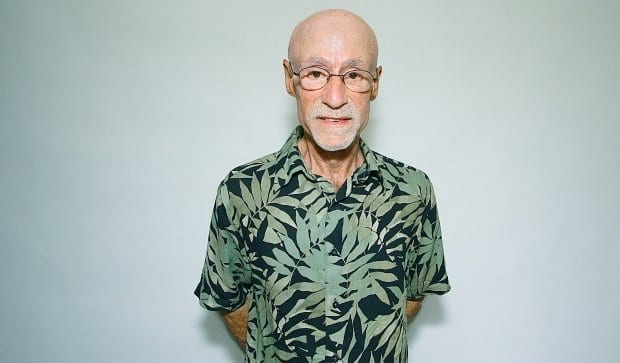As the generation of gay men who felt the brunt of the early AIDS crisis in the 1980s ages, some community leaders say more attention must be paid to meeting their current and future needs.
This fall will see the launch of a new discussion group for senior gay men and a research project aimed at studying their needs.
Researcher Robert Ablenas is part of a health team, along with Scott Harrison and Trevor Corneil, that has received a one-year grant of $25,000 from the Canadian Institutes of Health Research. The funding is being directed through Vancouver’s Health Initiative for Men, Ablenas says.
The team’s goal is to review new data about emotional, physical and health challenges faced by senior gay men over the age of 60 in BC, to determine how to move forward in cooperation with other agencies.
Members of that age group were shell-shocked as their peers were decimated in the early days of AIDS, Ablenas says. After being rejected, in many cases, by their biological families and subjected to negative responses to their sexuality, many of these men lost their chosen families to AIDS, he explains.
“This particular generation has a cultural double whammy, with family problems and AIDS.” As a result, many gay men became isolated and face specific challenges as they age, he says.
Ablenas says the decision to create a research project was driven by conversations and anecdotal reports that “there was not a lot out there.”
He would like to see more social support networks and better health outcomes. But first, he says, the research can help determine people’s needs.
“That is in no way to say other organizations are doing anything wrong,” he adds. “It’s about stepping up the pace.”
Ablenas says the research team will focus on social-support networks and the health benefits fostered by belonging to such networks, as well as how best to nurture their development.
He says BC health-policy developers and service providers have already expressed interest in hearing the results.
The implemented results could offer senior gay men increased access to social-support networks and their health benefits, as well as create more autonomy and reduce their reliance on BC’s healthcare services.
Former city councillor Alan Herbert says the time has come to recognize the unique challenges gay men over 55 face. His new weekly discussion groups, to be held Wednesday nights at 7pm at the Roundhouse Community Centre, start Sept 18.
Herbert says the group-discussion format will be based on earlier groups, such as Hominum for married men and the Wednesday Night Group for men with AIDS, that he participated in more than 20 years ago.
“I’m not putting any limits on it,” he says. “There’s so many issues that come up.”
He says topics for discussion could include socialization, dating, suicide, body image, housing and assisted living — where some men might have to go back into the closet in order to get housing — and what retirement means for gay men who don’t fit the straight mould of retirement.
“Your story of aging is written and embedded in society,” he says of straight culture. “The same story is not written for gay men.”
And, he echoes Ablenas, some men are still dealing with the trauma of having lost so many friends to AIDS.
“The people who would be my best friends today are dead,” he says. “People who are straight don’t have that. There wasn’t that plague.”
“There’s so many issues to discuss,” Herbert says.

 Why you can trust Xtra
Why you can trust Xtra


